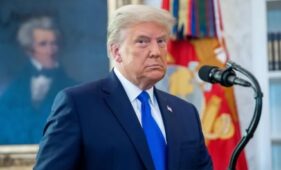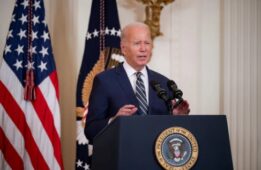These Are The Countries Still Selling Arms To Saudi Arabia edition.cnn.com
A number of countries have restricted arms sales to Saudi Arabia since the kingdom began airstrikes on Yemen in 2015, in a war that the UN describes as the world's worst man-made humanitarian disaster.
Calls for more restrictions on arms exports have been growing, particularly in Europe, since the killing of journalist Jamal Khashoggi at the Saudi consulate in Turkey last month. US President Donald Trump, however, has repeatedly pointed to the US' lucrative arms deals with the Saudis as a reason to stand by the kingdom.
Denmark and Finland on Thursday became the latest countries to suspend new arms deals with Saudi Arabia. Denmark's Foreign Ministry said it was freezing new deals over both Khashoggi and Yemen, while the Finnish Foreign Ministry mentioned only Yemen. Finland also banned new arms sales to the United Arab Emirates, which is part of the Saudi-led coalition in the conflict.
Their announcements came just two days after Germany said it was stopping all arms transfers to the kingdom.
Denmark and Finland are not major suppliers of weapons to Saudi Arabia, but Germany certainly is. It had already suspended new arms deals to Saudi Arabia, but on Monday it widened that ban to include the transfers of weapons on existing orders as well.
So where is Saudi Arabia getting its weapons from?
Arms deals are often done in secret or with little publicity. The Stockholm International Peace Research Institute (SIPRI) tries to track deals involving major weapons, and a database of Saudi imports from the last decade shows the United States as the biggest supplier, followed by the United Kingdom, France, Spain and then Germany.
But a lot of exporters still selling to the Saudis have dramatically decreased their supply in recent years. The United Kingdom, for example, transferred arms worth an estimated $843 million in 2016 but almost halved that value to $436 million last year, according to SIPRI. (The database uses values constant with 1990 prices to eliminate currency fluctuations and inflation.)






Leave Your Comment